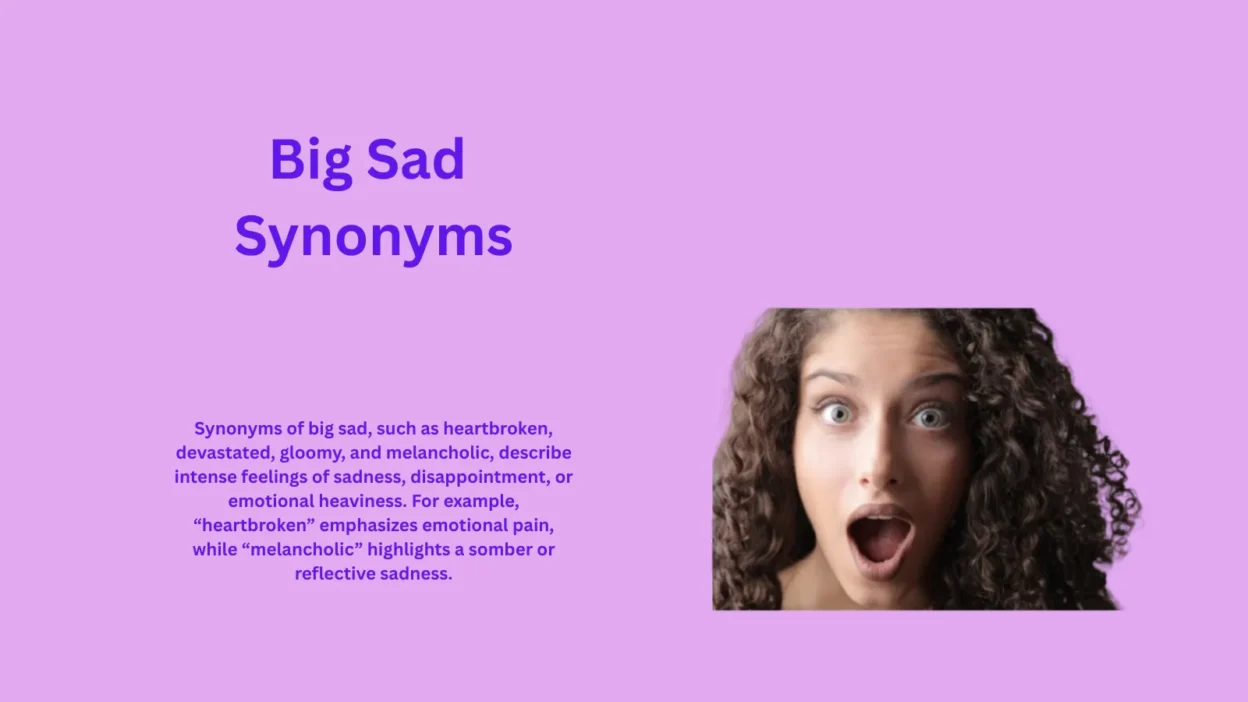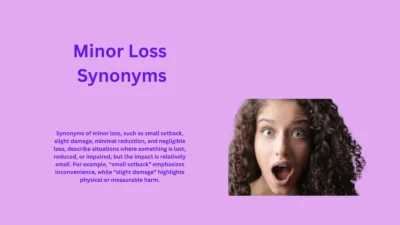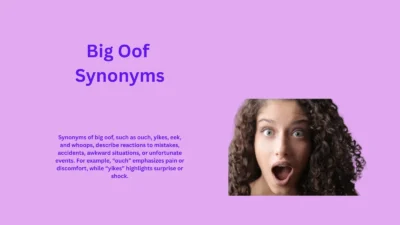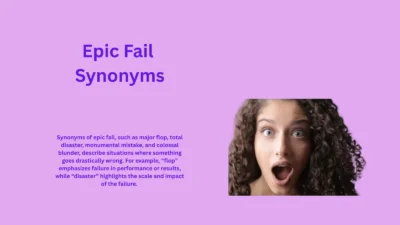Synonyms of big sad, such as heartbroken, devastated, gloomy, and melancholic, describe intense feelings of sadness, disappointment, or emotional heaviness. For example, “heartbroken” emphasizes emotional pain, while “melancholic” highlights a somber or reflective sadness. These words capture the sense of deep emotion, loss, or gloom in both literal and figurative contexts.
If you’re writing about mental health, personal experiences, literature, or social media expressions, using the right synonym for big sad helps convey the depth and tone of the emotion more vividly.
These synonyms allow writers to describe varying levels of sadness—from mild gloom to overwhelming emotional distress.
What Does Big Sad Mean?
Big sad is an internet slang term used to describe strong feelings of sadness, disappointment, or emotional distress. It’s often used humorously online but can also reflect genuine emotional moments.
Big sad can indicate:
- Emotional Intensity: Feeling deeply sad or heartbroken.
- Disappointment: Letdowns, unmet expectations, or failures.
- Gloomy Mood: A somber or reflective state of mind.
Think of big sad as a modern way to express emotional heaviness, often in social media, memes, or personal writing.
Synonyms for Big Sad (With Meanings, Usage & Examples)
1. Heartbroken
Meaning: Experiencing intense emotional pain or loss.
When to Use: Personal, literary, or social media contexts.
Example: She was heartbroken after the breakup.
2. Devastated
Meaning: Overwhelmed by grief, shock, or disappointment.
When to Use: Strong emotional expression; formal or informal.
Example: He felt devastated when he lost his job.
3. Melancholic
Meaning: Deeply thoughtful sadness, often reflective.
When to Use: Literary, poetic, or reflective writing.
Example: The melancholic tune made everyone contemplative.
4. Gloomy
Meaning: Dark, sad, or depressing mood.
When to Use: Casual or literary contexts.
Example: The rainy day left her feeling gloomy.
5. Miserable
Meaning: Extremely unhappy or uncomfortable.
When to Use: Everyday or descriptive writing.
Example: He was miserable after failing the exam.
6. Despondent
Meaning: In low spirits, feeling hopeless.
When to Use: Formal or literary contexts.
Example: She grew despondent after the repeated setbacks.
7. Sorrowful
Meaning: Full of sorrow or grief.
When to Use: Formal, literary, or empathetic writing.
Example: The letter left him feeling sorrowful.
8. Blue
Meaning: Mildly sad or melancholic.
When to Use: Informal, conversational writing.
Example: She’s been feeling blue all week.
9. Woeful
Meaning: Full of woe or misery.
When to Use: Literary or dramatic contexts.
Example: His woeful expression revealed the bad news.
10. Heartache
Meaning: Emotional pain or distress.
When to Use: Personal, narrative, or reflective writing.
Example: She felt a sharp heartache after hearing the news.
11. Downcast
Meaning: Feeling low, dejected, or sad.
When to Use: Formal, literary, or descriptive writing.
Example: His downcast eyes showed his disappointment.
12. Melancholy
Meaning: Deep sadness or gloom, often with reflection.
When to Use: Literary, poetic, or thoughtful contexts.
Example: A sense of melancholy hung over the empty house.
13. Distraught
Meaning: Deeply agitated or upset.
When to Use: Strong emotional or dramatic situations.
Example: She was distraught after the sudden news.
14. Forlorn
Meaning: Lonely, abandoned, or hopeless.
When to Use: Literary, formal, or poetic writing.
Example: He looked forlorn standing by the empty bench.
15. Heart-sick
Meaning: Emotionally distressed or grieved.
When to Use: Informal, narrative, or expressive writing.
Example: She was heart-sick over the family argument.
16. Anguished
Meaning: Experiencing severe emotional pain.
When to Use: Formal, literary, or expressive contexts.
Example: He gave an anguished cry after the accident.
17. Heavy-hearted
Meaning: Feeling sorrowful or burdened emotionally.
When to Use: Literary, reflective, or empathetic writing.
Example: She left the meeting with a heavy-hearted sigh.
18. Low-spirited
Meaning: Feeling down or lacking energy due to sadness.
When to Use: Casual or descriptive writing.
Example: He was low-spirited after the disappointing results.
19. Heartbroken Blues
Meaning: A combination of heartache and sadness.
When to Use: Informal, expressive, or poetic writing.
Example: She sank into heartbroken blues after the breakup.
20. Mournful
Meaning: Feeling or expressing grief.
When to Use: Literary, reflective, or empathetic writing.
Example: The mournful melody brought tears to their eyes.
21. Crestfallen
Meaning: Dejected or disappointed.
When to Use: Literary or formal contexts.
Example: The team looked crestfallen after the loss.
22. Grief-stricken
Meaning: Overwhelmed with grief or sorrow.
When to Use: Formal, literary, or emotional reporting.
Example: He was grief-stricken after losing his pet.
23. Sad-Faced
Meaning: Displaying sadness visibly.
When to Use: Informal, social media, or storytelling.
Example: She walked in sad-faced and quiet.
24. Heavyhearted Sigh
Meaning: Expressing sadness through emotion or body language.
When to Use: Narrative, storytelling, or informal writing.
Example: He let out a heavyhearted sigh after the bad news.
25. Tearful
Meaning: About to cry or full of tears.
When to Use: Everyday, narrative, or emotional writing.
Example: The tearful goodbye was hard to watch.
26. Depressed
Meaning: Feeling deep sadness or hopelessness.
When to Use: Clinical, narrative, or casual contexts.
Example: He felt depressed after months of unemployment.
27. Unhappy
Meaning: Simply not happy; feeling sad.
When to Use: General or casual writing.
Example: She felt unhappy with the outcome.
28. Brokenhearted
Meaning: Experiencing emotional heartbreak.
When to Use: Informal, literary, or emotional writing.
Example: He was brokenhearted after the betrayal.
29. Wistful
Meaning: Sad with longing or nostalgia.
When to Use: Literary or reflective contexts.
Example: She gave a wistful smile thinking of old times.
30. Desolate
Meaning: Feeling empty, lonely, or sad.
When to Use: Literary, reflective, or dramatic writing.
Example: He felt desolate after the city emptied during lockdown.
How to Choose the Right Synonym for Big Sad
The right synonym depends on context, tone, and audience:
- Formal / Literary: Melancholic, sorrowful, despondent, forlorn, desolate
- Informal / Everyday: Sad-faced, blue, unhappy, tearful, heartbroken
- Emotional / Reflective: Heavy-hearted, mournful, wistful, crestfallen, heartache
- Dramatic / Intense: Devastated, distraught, anguish, grief-stricken, brokenhearted
Conclusion
The synonyms of big sad allow writers to describe varying levels of sadness—from mild disappointment to deep emotional distress. Words like heartbroken, devastated, and melancholic make feelings vivid, while heavy-hearted, wistful, and forlorn convey reflective or dramatic moods.
Using the right synonym helps your writing communicate clarity, emotional depth, and relatability—whether you’re writing social media content, personal stories, or literary pieces. Each word adds its own nuance to the spectrum of sadness, helping your audience truly feel the emotion.




